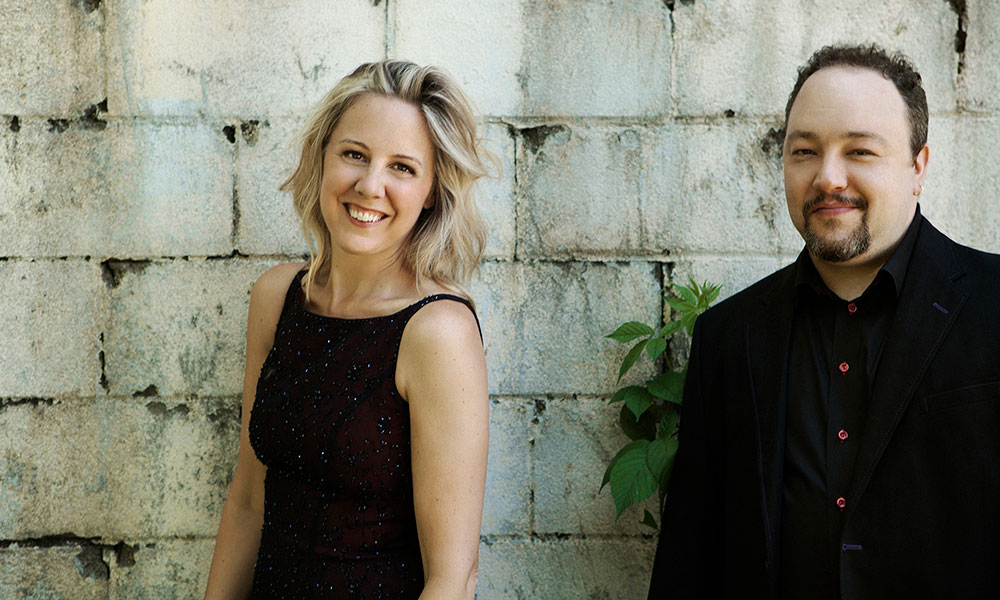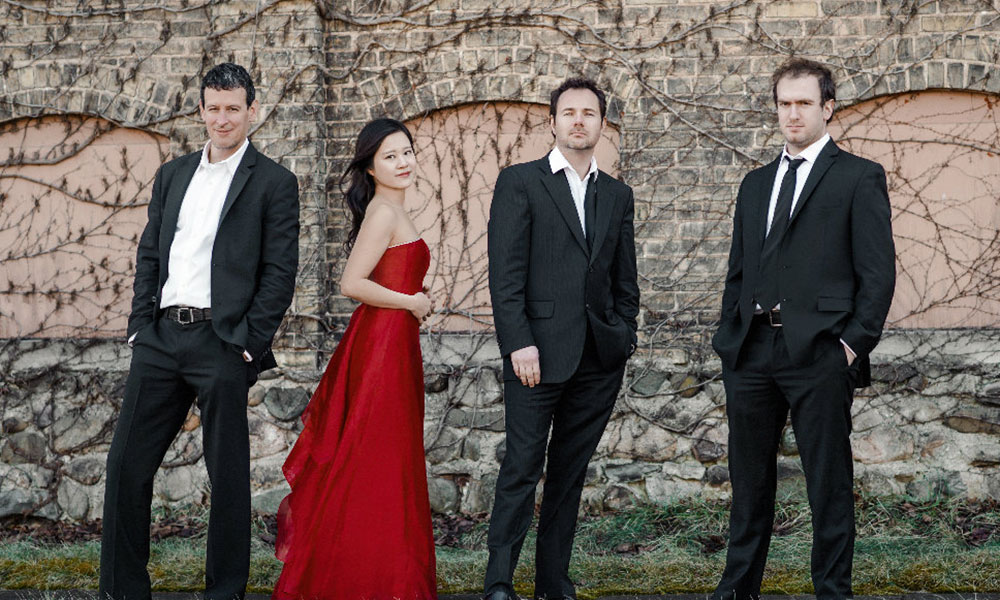I love summers in Saratoga for a number of reasons. I could say it’s because I first visited the seductive Spa City in the summertime (on the Fourth of July, actually) three years ago. It could also be that growing up down South, I’m just more accustomed to the longer days when the sun and humidity beat you down (after an Upstate winter, I prefer that). But the top reason I love Saratoga in the summer is very simple: all the great music that comes to town. More music comes up to our little strip of New York than most cities get all year. From perennial favorites like the Philadelphia Orchestra and the New York City Ballet to special features like Kendrick Lamar and the Cuban National Ballet to, yes, annual fixtures like Phish and the Dave Mathews Band, when it comes to music, Saratoga packs a punch.
Get ready to add one more amazing music event to your calendars: a brand-new festival that, as my second guitar teacher would say, is going to knock your socks off. On June 8, the Mostly Modern Festival will debut at Skidmore’s Arthur Zankel Music Center. (If you’re wondering, the name’s a play on the popular Mostly Mozart Festival held each August at Lincoln Center.) The Mostly Modern Festival isn’t just a twist on a well-known brand name; it’s an inversion of the entire classical music programming model. “One of the main reasons we wanted to turn this all around is that we feel like contemporary work, if it’s programmed well (and we programmed some really great pieces), will actually be the gateway for audiences to get into the old stuff,” says Robert Paterson, an award-winning composer of contemporary music and the cofounder and Artistic Director for the Mostly Modern Festival (not to mention a Buffalo native). “So many people don’t start out getting into old classical music at all.”

Robert’s wife, Victoria, cofounded the festival and serves as its Executive Director. She’s a NYC-based violinist who’s played everywhere. Like, literally, everywhere from Broadway to Madison Square Garden to TODAY—and even for former First Lady Michelle Obama (she’s also toured with actress Barbra Streisand). Despite often playing more traditional contemporary music, Victoria finds herself in agreement with her husband. “Many orchestras—although not the Albany Symphony because [conductor] David Alan Miller does a ton of living composers and new things—stick to your ‘Bach, Beethoven, Brahms’ model. And I don’t think that’s helping the future of classical music.”
It’s true that classical music, especially among younger audiences, has gained a reputation for being, well, just that: classical (that is to say, cough cough, dusty or obsequiously traditional). This is a subject that hits close to home for me, because I’m a classically trained musician (yes, I do more than sit in my PJ’s and scribble all day). When I was still in my teens, I signed up for some classical guitar lessons at a local college thinking that classical guitar was actually flamenco guitar, the fiery, gitano-inspired music of southern Spain. After about four months of very disciplined fingerpicking, note-reading and Bach-playing, I asked my teacher when we were going to start learning rasgueado, the fast, multi-finger strumming that flamenco’s famous for. He just laughed and said, “Never. We’re classical guitarists—we don’t do that.” Maybe I was a little disappointed when I heard that (and shocked at my own ignorance), but I’m eternally grateful that I stuck with the lessons (for six years), because I love classical music and the discipline of practicing and staying with an instrument has permanently enriched my life (plus, I did eventually learn some rasgueado, and, well, I’m okay at it).

Now, if you’re not so familiar with classical music or the way it’s presented in concert, suffice it to say that the golden oldies get almost all of the airtime. Classical music produced since the end of World War II has been very eclectic, avant-garde, and, at times, difficult to classify, comprising everything from Ligeti’s haunting and atonal Requiem used in Stanley Kubrick’s 2001: A Space Odyssey to American composer John Cage’s infamous 4’33 (exactly 4 minutes and 33 seconds of orchestral silence) to something as household and “normal-sounding” as the themes from Star Wars or Jaws by John Williams (though, the latter was swiped from the opening bars of Dvořák’s “New World” symphony). The truth is, modern audiences still aren’t quite sure what to make of contemporary classical music. But that’s okay, according to Robert Paterson. “Of course, you’re not going to like every single piece in the concert because they’re really diverse,” he told me. “That’s part of trying something new. But we hope you’ll find something that you like.”
To this point, the Patersons have stocked the first Mostly Modern Festival with a number of accomplished and award-winning musicians, conductors and composers. More than 70 instrumentalists and conductors will perform the works of 35 different composers from China, Australia, Europe and the US (composers hail from 21 states, including New York). And all this is going to be achieved in just ten days. The short list of premier classical acts include the Euclid String Quartet, four instrumentalists from four different continents celebrating their 18th anniversary season; Imani Winds, a Grammy-nominated wind quintet that melds classical with world music; and the Atlantic Brass Quintet, the winners of six international chamber music competitions. The concert series will also include special guest artists such as actor Larry Pine (Moonrise Kingdom and House of Cards), soprano Caitlin Lynch (first-place winner of the 2008 Houston Grand Opera Competition) and baritone Chad Sloan. And did someone say cash bar before every show? “Skidmore has never done this before, but I was like, ‘We need red and white wine and beer, nothing fancy,” says Robert Paterson. “But we’re doing that, because this is what we do in New York, and people like to have drinks and have a good time.”
Tickets are $20 per show ($10 for students), but you can also get a festival pass at mostlymodernfestival.org, which includes access to all eight shows as well as the opening and closing night parties at Skidmore. With all this culture coming to Saratoga, I know I’m going to be having more than a mostly great time this summer.


